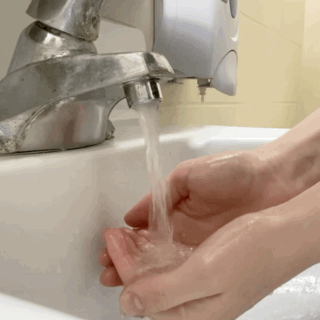Randall Jeffay was one of the millions of Americans laid off due to the COVID-19 pandemic. He needed work, but he’s also at high-risk.
“I’m 61 years old,” he said. “I’m actually a renal transplant recipient, so I have a suppressed immune system.”
Going out in public or to an office was out of the question. But then he stumbled onto an article about Illinois community colleges offering courses to become a contact tracer from home.
“It interests me because I'm a people person, so I gonna be able to talk to people, but I'm also gonna be able to help people which I think is a good thing,” said Jeffay.
Illinois Governor J.B. Pritzker seems to agree with that last part. He has called contact tracing “arguably our most sustainable tool” to contain coronavirus. The governor’s “Restore Illinois” reopening plan highlighted its importance.
Jeffay enrolled in a four-week course at College of DuPage. Due to student demand, the college had to add extra sessions. He’s just finishing, so he’s in the process of looking for employment. He said that’ll be easy since the job is in such high demand.
Some local health departments, like in Cook County, are offering positions starting at $20 an hour. Jeffay said he’s seen jobs offering between $35,000-$50,000 per year.
“So, I'm not gonna buy my second yacht working this job," he said, "but, you know, it'll put food on the table and keep a roof over my head, so I'm pretty happy with it."
The work of a contact tracer has been likened to a detective or a game of “CLUE,” but Jeffay says he sees it much differently.
“Typically, you're gonna call someone up," he said, "they've recently tested positive and or they've been in contact with someone who tested positive and it can be, you know, kind of scary."
Jeffay said he’s more of a resource than a private eye.
“You find out when their symptoms started, then calculate their date of infection," he said. "The standard is two days prior to the first symptoms appearing."
Depending on those symptoms, he said, they’ll know if they have to self-isolate or seek medical attention.
The contact tracer’s job is not only to ask people about where they’ve been and who they’ve seen. They also direct them to any medical help or social services they need.
Tracers also have to be able to break down information about the virus. And dispel myths and rumors floating around the internet.
If the person needs to quarantine and are on their own, tracers can also help coordinate food, laundry and even housing.
For those perceived to be at higher risk, a contact tracer may follow up with a person every other day or, in certain cases, just once a week. Sometimes, people are hesitant to talk.
“You need to develop some sort of a relationship with this individual," said Jeffay, "because the other part of it is they need to give you truthful information."
Illinois Public Health Director Ngozi Ezike acknowledges that. She stresses the importance of the state’s collaboration with community groups. Ezike says the groups may be able to reach people at risk who are uncomfortable talking with health officials.
Contact tracing has been pushed into many people’s vocabulary lately but it isn’t new. Public health workers have been doing it for decades to combat infections like tuberculosis and sexually transmitted diseases. But it’s just not normally done on this massive of a scale.
Right now, Illinois has 1,600 working contact tracers and is looking to hire more than 4,000.
“This is going to be a viable employment opportunity for years," Jeffay said. "I’m being positive, I hope that four years from now we've kind of licked the COVID thing, [but] there's always going to be a need for contact tracers -- just not quite in the volumes that we need now.”
Governor Pritzker just announced that the state is pumping more than $200 million into contact tracing efforts for local health departments and community organizations.


